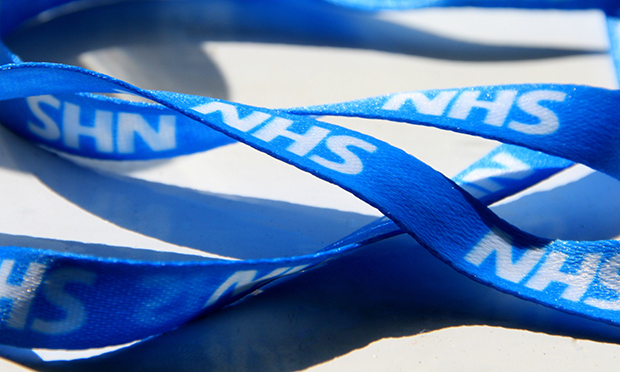Campaigners decry ‘cruel and horrifying’ regulations hitting migrants during Covid-19 crisis

Photograph: Flickr
The immense difficulties faced by migrants in accessing affordable healthcare, including those working in the NHS, during the Covid-19 pandemic are being highlighted in a joint call for change by campaign group Keep Our NHS Public and Hackney Migrant Centre.
In a virtual meeting on the issue last week, the two organisations condemned rules introduced in 2015 levying NHS charges to migrants at 150 per cent of the usual internal tariff, with migrant women facing fees of nearly £7,000 for maternity care against normal charges of just over £4,600.
Local examples were cited by the Migrant Centre, such as ‘AA’, who was charged over £270 per month for care by the Homerton, which, while negotiated down to £50 per month through the centre, is still being paid to the hospital during the pandemic.
Migrant Centre chair Rayah Feldman said: “Nothing has happened to healthcare charging except a very little publicised exemption for testing and treatment of Covid-19.
“Many asylum seekers are still in overcrowded hostels unable to socially distance or self-isolate. People are still getting demands for payment. Maternity cases have not been invoiced but are likely to be when the pressure on hospitals diminishes.
“[It is] difficult for people in crowded living conditions to social distance, for example, a pregnant woman with two kids in her uncle’s living room.
“What can we do? Campaign for the kind of society we want to live in, rather than these cruel and horrifying regulations, [and] support campaigns against charging, [including] Keep Our NHS Public, Patients not Passports, and Docs not Cops.”
Another example cited by the Centre is ‘OI’ – not a Homerton patient – who was charged over £12,000 for ongoing cancer treatment, despite having lived in the UK for over 35 years.
On daily medication for his condition which comes with “significant side effects”, and relying on local community support and family due to his financial situation, OI continues to receive letters from debt collectors for his treatment during the coronavirus crisis, causing stress and exacerbating his condition.
The Department for Health and Social Care (DHSC) argue that the NHS functions as a residence-based system, adding that it is “only right” that those who do not live in the UK “on a lawful, settled basis” make a financial contribution for their care.
Feldman went on to stress that failure to repay charges of £500 or more within two months results in patients being reported to the Home Office.
A deterrent effect on the sick is brought about by charging regimes, according to the Centre, as while exemptions include testing for Covid as well as other infectious diseases and for survivors of torture, victims of domestic and sexual violence or female genital mutilation, people often will not know before their diagnosis whether they will be charged for what they have.
The costs were starkly illustrated by Feldman during the meeting, with those without indefinite leave to remain, including doctors, nurses and other frontline NHS staff, having to pay a yearly health charge set to rise to over £600 from October.
After intense pressure, the government today announced it is working on plans to exempt all NHS workers from overseas, including independent health workers and social care workers, from the surcharge. More details are expected in the coming days.
The 150 per cent lift in the rates paid by those resident outside the European Economic Area by patients is there as a result of administration costs incurred by the NHS in their treatment, according to the Department for Health and Social Care (DHSC).
The Centre has also warned that the policy of charging leads to stigmatisation and racial profiling, with white British patients in the charity’s experience being “much less likely to be challenged,” as well as of the impact on effective contact tracing for Covid that hostile environment policies are likely to have.
At the beginning of the lockdown, the Migrant Centre reorganised its face to face services to provide advice on immigration, housing and health remotely, with their collective care team also supporting people with food deliveries and other support.
When asked by the Citizen what research has been carried out on the potential impact of the deterrent effect of the five-year-old charging arrangements, the DHSC said that it is “committed” to considering evidence around the regulations, stressing that urgent treatment ought not to be delayed or withheld to establish whether a patient should be charged or to seek payment.
It also pointed to its guidance for NHS trusts on how to implement charging regulations in a way that avoids discrimination when asking questions to identify patients who may have to pay the charges.
Hospitals are advised by the government to ask all patients whether they have lived lawfully in the UK for the last 12 months, with guidance stressing it is not discriminatory to ask this question if you show that everyone, regardless of address, appearance or accent, is asked this question ahead of a course of treatment.
A Department of Health and Social Care spokesperson said: “It is only right those who are not entitled to use the NHS contribute to the cost of their care.
“However, during this unprecedented period, we have made important changes to the charging regulations – meaning no one will be charged for their COVID-19 testing, diagnosis or treatment.
“Migrants who live in the UK on a lawful settled basis already receive their NHS care for free and many more are exempt from charges, including temporary migrants who pay the immigration health surcharge, and asylum seekers.
“Services such as NHS 111, primary care and A&E continue to be free of charge to all overseas visitors and we are clear urgent treatment must never be withheld.”
